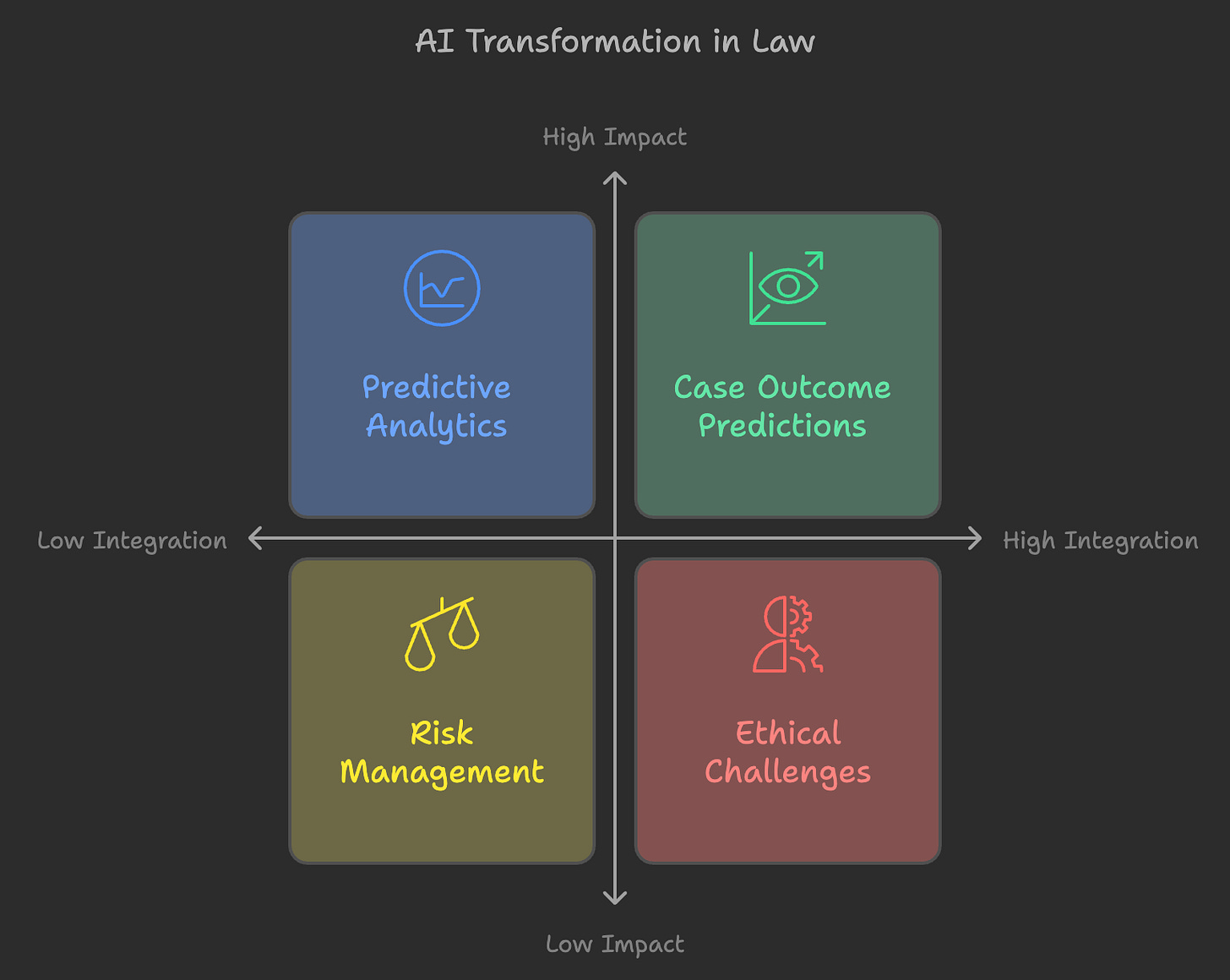Picture the law office of the future: a place where legal outcomes aren't guesswork but calculated insights, not guessed by intuition alone but derived from data. This isn’t sci-fi; it’s the promise of predictive analytics in law, powered by artificial intelligence.
What, you might wonder, is predictive analytics? Simply, it’s the practice of analyzing past data to predict future outcomes. In law, this involves parsing case histories, judgments, and contracts to unveil patterns that even the most experienced attorney might overlook. But remember, it’s not a magic solution; it’s an informed probability tool—a "digital crystal ball."
How might this technology impact law? Consider case outcome predictions. AI tools can analyze vast databases of case law and judge rulings, estimating a case’s likelihood of success with data-driven accuracy, shifting the profession from “we think we’ll win” to “we have a 78% chance of winning.”
Beyond outcomes, it brings foresight in risk management, identifying contract clauses or regulatory gaps that could lead to disputes, allowing firms to resolve issues preemptively. Clients increasingly expect such data-informed guidance, looking to lawyers as both legal experts and strategic advisors.
As AI transforms the field, ethical challenges loom: can we trust AI in decisions affecting lives? Lawyers must use predictive analytics responsibly, balancing data with human judgment to serve justice while embracing innovation.




